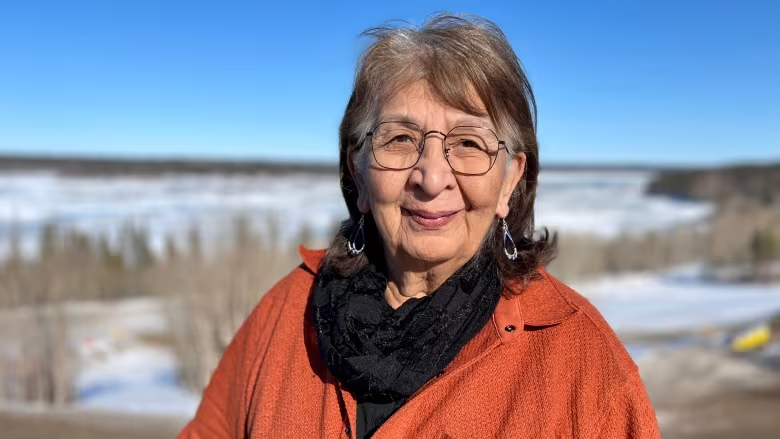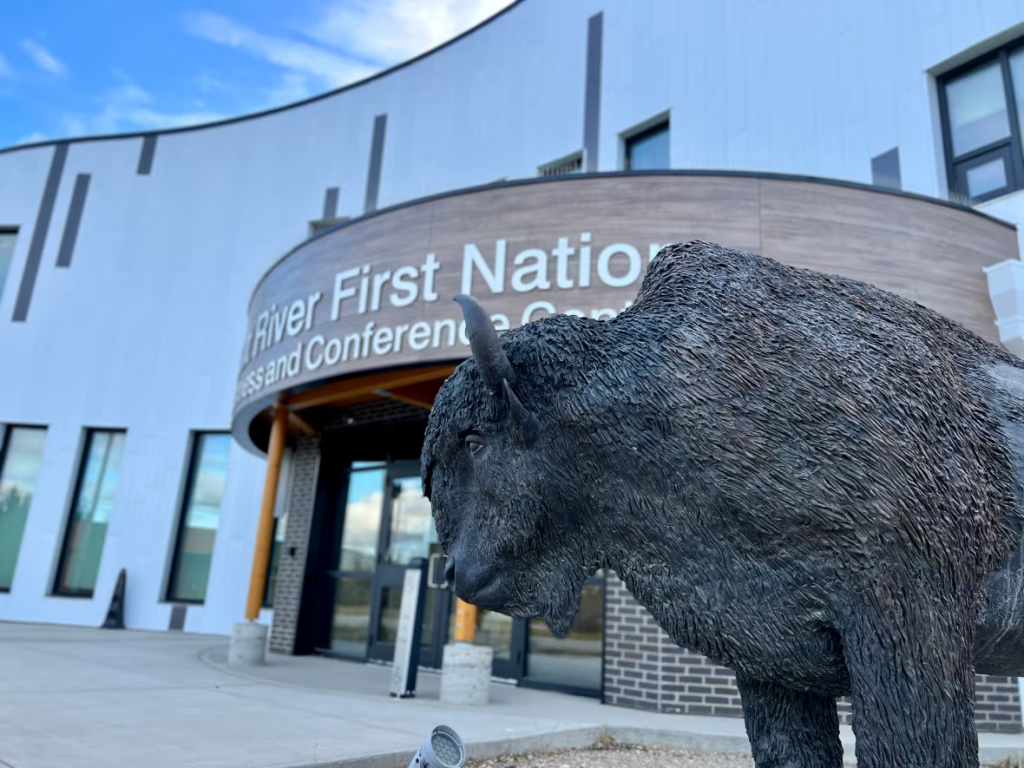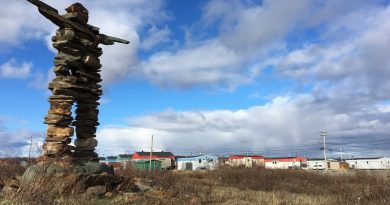Elected chief of Salt River First Nation wants to end fighting & a chance to lead

· CBC News
Toni Heron was suspended less than a month after being elected
It’s been a year and a half since Toni Heron was elected chief of Salt River First Nation, N.W.T., but she’s still waiting for a chance to properly step into that role.
Speaking publicly for the first time on the latest court battle, Heron told CBC it’s been a long, drawn-out process and not something that she saw coming when she was elected.
“When you get elected into a position, you’re there to work for the people who elected you,” she said. “I was elected by the members to do a duty. And that duty is to the membership.”
In the most recent development, the acting chief and council called a special meeting last Thursday to ask the membership to vote whether to completely remove Heron from power.
But the morning of the meeting, federal court Justice Christine Pallotta prohibited Salt River First Nation (SRFN) from holding the special meeting to remove her, and stayed her previous suspensions.
Pallotta also declined to issue an injunction that would stop council from re-suspending Heron.
Council has now voted to re-suspend Heron until midnight on April 19.
Pallotta also issued a temporary stay of council’s decision to ban Heron from SRFN offices and from interfering with administration, staff and day-to-day business, until that matter can be addressed by a judicial review.
A long-standing issue
It’s the latest in months of political turmoil that have seen Heron repeatedly suspended as chief since she was elected in September 2022 — efforts led by councillors Brad Laviolette and Kendra Bourke, both of whom Heron has also tried to get removed from council.
Laviolette then stepped in as acting chief.
CBC has repeatedly reached out to Laviolette, but so far he has declined to comment. CBC has not been able to reach Bourke for comment.
Council documents up until this point show Laviolette and Bourke allege Heron violated her oath of office and the First Nation’s election code shortly after being elected because of disputes that had arisen during a council meeting.
Council called the April 4 special meeting after a recent federal court judgment. In it, Justice Paul Favel found that the Salt River First Nation (SRFN) council did not follow its election code when suspending Heron as chief.
Favel approved Heron’s application for a judicial review of the suspension against her and said when council suspended and then repeatedly re-suspended Heron, they did not do it “in a procedurally fair and reasonable manner.”
That judicial review has not yet been released.
Favel also dismissed SRFN’s application for a judicial review of a special meeting that Heron had called for October 23, 2022, to remove Laviolette and Bourke from council. At that meeting, SRFN members voted to remove the two councillors.
Call to work together
SRFN has had issues in the past with infighting and litigation against its members but Heron said her goal was to give a voice back to the members, something she never got a chance to do.
“I believe that the members have the right to have their say, at the band level. And that’s not happening,” she said.

Heron said she wants the membership to come together and work with the community to strengthen the First Nation.
“My goal was to really follow the young people, education-wise, trades-wise and also give to our elders. Our elders should have a say in what happens in our membership,” she said.
“I really believe we get a lot of wealth of education from [the elders], and knowledge. And that has not happened.”
One of her main concerns right now is with how much money the First Nation has spent to fight her at every turn. That’s not new, Heron said — she estimated the First Nation has spent millions of dollars taking their own members to court.
That’s money that, Heron said, could have gone to other significant building blocks for the First Nation like housing and support for youth and elders.
“I think the membership needs to know that,” she said. “You know, the only ones that are benefiting are the lawyers. No one else.”
She also contended the council hasn’t followed the First Nation’s own election code, which she says requires them to go to the membership for approval before taking members to court or appealing judgments.
“This council has not followed the election code. They follow it whenever it’s convenient for them to follow it. But for the members, it’s not there,” she said.
Heron said for now, she will continue to focus on advocating for the members and their decision to elect her as chief.
Related stories from around the North:
Canada: Salt River First Nation in N.W.T. still in political turmoil after court decision, CBC News
Finland: Finnish Court annuls 2023 Sámi elections, The Independent Barents Observer



